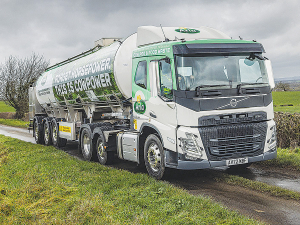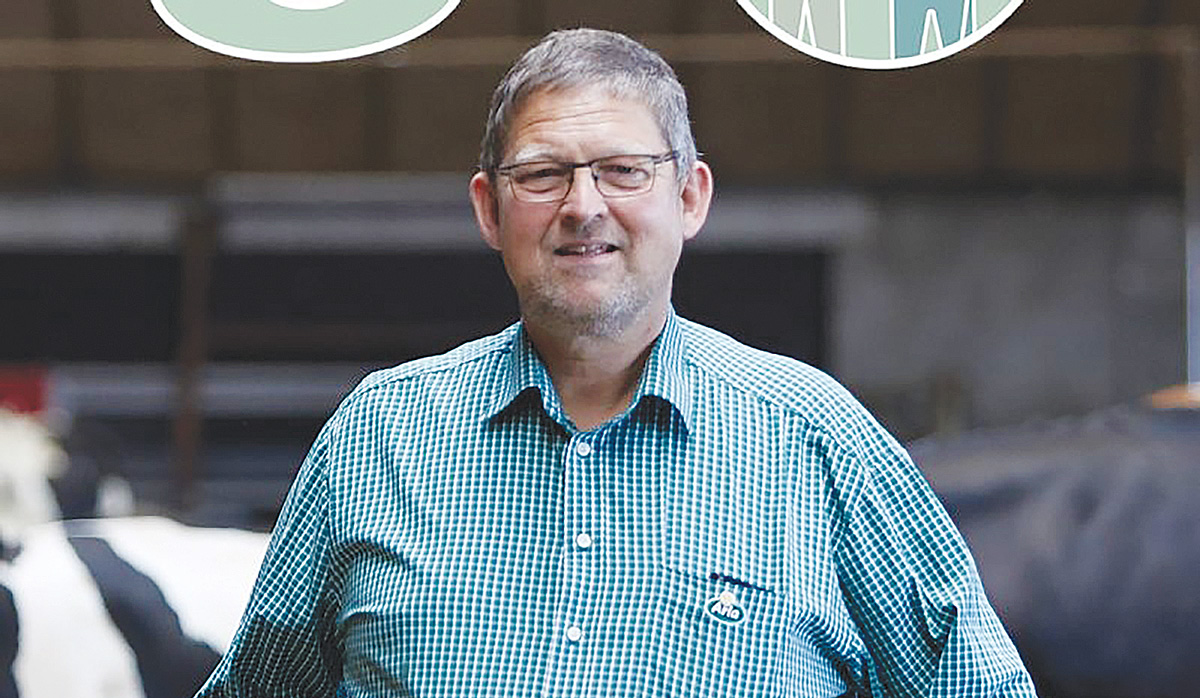Alliance commissions major heat pump system at Mataura, cutting coal use and emissions
Alliance Group has commissioned a new heat pump system at its Mataura processing plant in Southland.
 Arla will pay farmer suppliers over $4 billion until 2030 in incentive payments to reduce scope 3 emissions.
Arla will pay farmer suppliers over $4 billion until 2030 in incentive payments to reduce scope 3 emissions.
Danish co-op Arla is now paying a monthly incentive to its farmer shareholders for sustainability efforts.
Arla says it intends to pay farmer suppliers over $4 billion until 2030 in incentive payments to reduce scope 3 emissions.
Arla’s scope 3 target is to reduce carbon dioxide emission by 30% by the end of 2030.
Fonterra is talking to its farmer shareholders about setting scope 3 targets.
Arla says its farmers suppliers are rewarded for climate activities and other sustainability efforts being made on their farms, using a datadriven and science-based points system.
It says farmers have implemented more activities than first anticipated and, based on the current level, Arla stands to pay out $4b until the end of 2030 for farmers’ sustainability activities. The cooperative has, however, earmarked a bigger amount as it expects its farmer owners to raise the bar significantly higher.
Last year, Arla introduced its new groundbreaking Sustainability Incentive model which rewards farmers for the climate and environment-enhancing initiatives they undertake.
It says farmers who do the most for climate and environment will receive the highest price for their milk. And consequently, the consumers are guaranteed that a part of the price they pay for Arla’s products helps reward and motivate a faster transition to more sustainable dairy farming.
Arla has earmarked up to $900,000 each year to reward and motivate farmers, of which almost $600,000 is now activated.
Arla chief executive Peder Tuborgh says he has been looking forward to this day.
“The Sustainability Incentive is a large step towards linking economy and climate and nature improvements on farm.
“Arla’s unique point system makes it possible for us to reward our owners and thus contribute to their large investments in sustainability.
“At the same time, we strengthen the farmers’ motivation to implement the initiatives necessary for our cooperative to reach its ambitious climate goals for 2030,” says Tuborgh.
In 2022 alone, Arla farmers across seven countries reduced their carbon dioxide emissions from their milk by more than 2%.
Data from Arla’s Climate Check on the farms shows this. Among other things, this has happened because the farmers have produced and used feed more efficiently, used less fertiliser, improved their manure storage, reduced energy consumption and shifted to more renewable electricity.
When Arla introduced the Sustainability Incentive model, the dairy company expected farmers to achieve an average of 39 points out of a possible 80 in the new point system. However, the first inventory shows that the average farmer has achieved 48 points based on the initiatives registered by the end of June 2023.
The 48 points mean that across seven countries Arla pays out an average of 3c/kgMS to its farmer owners through the Sustainability Incentive. On top of this is another 1.8c/kgMS for submitting the Climate Check data that is required in order to take advantage of the Sustainability Incentive. For an average Arla farm with annual milk production of 1.6 million kgMS, the two amounts in total equal close to $73,000 a year.
 |
|---|
|
Arla Foods chair Jan Toft Nørgaard. |
Great Farmer Commitment
Arla Foods chair Jan Toft Nørgaard says its owners are working determinedly to reduce emissions on their farm.
“There is a great commitment in our cooperative to show our consumers, our industry and society in general that we as Arla farmers are able to produce milk with an increasingly smaller footprint on climate and nature.
“It is a significant effort for the individual farmer; however, many are well on their way and together we can motivate each other - through a financial incentive using our new points-based model.
“I am excited to watch the level going forward, because with this large engagement we will be able to move really far in a short period of time.”
According to the latest Fresh Produce Trend Report from United Fresh, 2026 will be a year where fruit and vegetables are shaped by cost pressures, rapid digital adoption, and a renewed focus on wellbeing at home.
The Roar is a highlight of the game hunting calendar in New Zealand, with thousands of hunters set to head for the hills to hunt male stags during March and April.
OPINION: The past few weeks have been tough on farms across the North Island: floods and storms have caused damage and disruption to families and businesses.
European dairy giant Arla Foods celebrated its 25th anniversary as a cross-border, farmer-owned co-operative with a solid half-year result.
The sale of Fonterra’s global consumer and related businesses is expected to be completed within two months.
Fonterra is boosting its butter production capacity to meet growing demand.
OPINION: Fonterra may be on the verge of selling its consumer business in New Zealand, but the co-operative is not…
OPINION: What does the birth rate in China have to do with stock trading? Just ask a2 Milk Company.